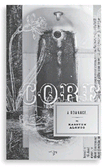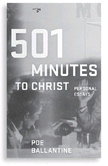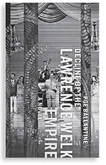Leaving Brooklyn (21 page)
Authors: Lynne Sharon Schwartz

“I can't believe that,” said my mother. “Where did you hear that?”
“It's true,” said Mrs. Ribowitz. “Things are coming out. You read bits and pieces in magazines and put it together. We could have taken refugees in the beginning but we didn't.”
“You see?” sneered my father, with a nod of esteem for the intellectual. “Millions of people rotted away and your Roosevelt didn't lift a finger till it was too late, and even then he waited till he couldn't help himself.”
“First of all he's not
my
Roosevelt, and second of all we don't have to discuss these things while we're eating.”
my
Roosevelt, and second of all we don't have to discuss these things while we're eating.”
“I 'm through eating,” said my father, pushing his plate away. “Is there any more coffee?”
My mother fetched the coffee pot and poured seconds while they all argued about Roosevelt.
“Well, whatever you say, I frankly find that very hard to believe,” she said. “I would have to read that with my own eyes.
Do you know, I was so upset the day he died I almost started a fire in the oven.”
Do you know, I was so upset the day he died I almost started a fire in the oven.”
“You didn't almost start it,” corrected my father. “You started it. It almost spread when you got the bright idea of pouring water over it.”
“All right, pardon me. The fact remains. That's how I felt.”
“I never thought he was the saint he was cracked up to be,” said Mr. Capaleggio. “I always had my suspicions.”
“Oh, you're a fine one to talk,” said my father. “Your Duce didn't exactly help matters, did he?”
“How dare you talk to him like that!” said Mrs. Cappy, half rising out of her chair. “He was born right here in Brooklyn. He's as much an American as you are, if not more. He's never even crossed the ocean. And both his younger brothers fought in the war, and Vincent came home with his foot blown off and a Purple Heart.”
“Yeah, take it easy, fella,” said Lou Zelevansky to my father. “You're way out of line there. Calm down and drink your coffee.”
Mr. Cappy just puffed on his pipe. “Leave him alone. I know what he's like. He doesn't mean it.”
“Okay. Okay. I spoke out of turn. No harm done, all right?”
I was stunned. My father, apologizing man-to-man. I wouldn't have thought him capable of it.
“But I 'll tell you one thing,” he continued, his voice low but still itching. “It is your Pope. That is the case, isn't it? And you can't tell me he didn't look the other way for years.”
“He's not my personal Pope. He's the Pope, that's all. What do you expect me to do about it? Challenge the Vatican? Start a vendetta on behalf of my Jewish friends?”
“Don't you think we should change the subject?” said Mr. Tessler, who so seldom spoke that his damp throaty voice was always a surprise. “I 'm sure we could find a more congenial topic.”
“That's an excellent idea, Nat. In a minute you can all tell me what you think of my apple pie.”
This was my cue to leave. I could not bear a congenial
topic after discovering there was life in Brooklyn. Passion. Conflict. Thought. An ample scene for both my eyes. But only under cover of darkness, with the children safely unconscious.
topic after discovering there was life in Brooklyn. Passion. Conflict. Thought. An ample scene for both my eyes. But only under cover of darkness, with the children safely unconscious.
“Excuse me, I'm going up to bed. This has been extremely interesting.”
“Yes, you really got an earful tonight, didn't you, Audrey?” said Lou Zelevansky, giving me one more avuncular poke, in the ribs.
“Oh, cut it out, Lou,” I said. “I'll be black and blue in the morning.”
My mother gasped and her mouth stayed open to reprimand me, but she thought better of it. “Don't you want to wait for dessert?”
“No thanks, I've had enough. Good night. Good seeing you all.” I started for the stairs.
“Did you hear the one about Sister Kenny and FDR?” said Lou. “Sister Kenny was helping him into the pool one day whenâ”
“Could you hold it just a minute?” my mother interrupted, and there was a heavy silence.
When I reached the top of the stairs I called down, “It's okay, I'm not listening.” I shut the door of my room. A moment later I heard a burst of collective laughter.
Â
WITH THE MONEY the eye doctor gave me I took the class in Scene Study. The passage I brought in the first day was from
A Streetcar Named Desire
. I was Blanche DuBois, welcoming the adolescent newsboy into her sister 's living room. The acting teacher, the same spindly teacher, recruited a boy to play opposite me. He hadn't very much to do in the scene, merely light Blanche's imaginary cigarette and receive her attentions, though who can tell what fertile residue these left in his lifeâhe is only an incidental character and one needn't worry about him. “âYoung man,'” I said. “âYoung, young, young man. Has anyone ever told you that you look like a young Prince out of the
Arabian Nights
?'” I crooned in a sultry voice, and as he stood in agonies
of awkwardness I reached out to stroke not his cheek but the air a half inch from it, which I thought was a brilliant touch. The air near his cheek was unusually warm, and his eyes looked terrified, yet at the same time ever so faintly amused. The next lines called for me to kiss him, but I didn't. “' Now run along, now, quickly! It would be nice to keep you, but I've got to be goodâand keep my hands off children.'” The class was awestruck.
A Streetcar Named Desire
. I was Blanche DuBois, welcoming the adolescent newsboy into her sister 's living room. The acting teacher, the same spindly teacher, recruited a boy to play opposite me. He hadn't very much to do in the scene, merely light Blanche's imaginary cigarette and receive her attentions, though who can tell what fertile residue these left in his lifeâhe is only an incidental character and one needn't worry about him. “âYoung man,'” I said. “âYoung, young, young man. Has anyone ever told you that you look like a young Prince out of the
Arabian Nights
?'” I crooned in a sultry voice, and as he stood in agonies
of awkwardness I reached out to stroke not his cheek but the air a half inch from it, which I thought was a brilliant touch. The air near his cheek was unusually warm, and his eyes looked terrified, yet at the same time ever so faintly amused. The next lines called for me to kiss him, but I didn't. “' Now run along, now, quickly! It would be nice to keep you, but I've got to be goodâand keep my hands off children.'” The class was awestruck.
Â
IT WAS NEVER again as it had been with the eye doctor. I was right, at fifteen, when I foresaw that. Not only because he was the first; not only because he was⦠he was⦠Oh, yes, because he was the first, and himself, he was something that flies off the page every time I capture a word to define it. But also because never again could there be that particular set of voluptuous, atavistic, outrageous, and above all delicate circumstances.
I left Brooklyn. I leave still, every moment. For no matter how much I leave, it doesn't leave me.
I didn't become an actress in the end, but instead this I who makes up stories. In this story, I can't help wondering if I have succumbed to the temptation of any maker of a memoirâto present it more dramatically, improve the events so that they yield a more precious truth.
How completely and
how deeply faithless we are,
how deeply faithless we are,
writes the poet Marina Tsvetayeva,
which is
to say: how true we are to ourselves.
to say: how true we are to ourselves.
Perhaps I haven't succeeded in finding the girl I was, but only in fabricating the girl I might have been, would have liked to be, looking backwards from the woman I have become. For now I could do easily all that she did with such effort, though now it couldn't happen. The very notion is an Escher construction: I am not a sheltered child but a grown-up version of a child who never
was. And maybe I am this way because she never was, couldn't be. And yet it feels so real. If it wasn't a memory to begin with, it has become one now.
was. And maybe I am this way because she never was, couldn't be. And yet it feels so real. If it wasn't a memory to begin with, it has become one now.
Does being true to one's self mean offering the literal truth or the truth that should have been, the truth of the image of one's self? It hardly matters by this time. By this time the border between seeing straight on and seeing round the corners of solid objects, between the world as smooth and coherent and the world as dissociated skinless particles, is thoroughly blurred. No longer a case of double vision, but of two separate eyes whose separate visionsâwhat happened and what might have happenedâcome together in what we call the past, which we see with hindsight.
Memory is revision. I have just destroyed another piece of my past, to tell a story.

Hawthorne Books & Literar y Arts Portland, Oregon
Current Titles
At Hawthorne Books, we're serious about literature. We suspected that good writers were being ignored and cast aside as a result of consolidation in the publishing M industry, and in 2001 we decided to find these writers and give them a voice. We publish American literary fiction and narrative non-fiction, although we won't turn down a good international title if we find one. All of our books are published as affordable original trade paperbacks, but feature details not typically found even in casebound titles from bigger houses: acid-free papers; sewn bindings which will not crack; heavy, laminated covers with M French flaps and built-in bookmarks. You can probably buy Hawthorne Books wherever you buy books, or from our Web site (
hawthornebooks. com
) postpaid
1
and for a substantial discount. If you like to read, we think you'll enjoy M our books. If you like to writeâwell, send us something. We're always looking.
hawthornebooks. com
) postpaid
1
and for a substantial discount. If you like to read, we think you'll enjoy M our books. If you like to writeâwell, send us something. We're always looking.
Â
FINALIST, 2005 OREGON BOOK AWARD

Core: A Romance
Kassten Alonso
Fiction / 208 pp / $12.95 / 0-9716915-7-6
Â
This intense and compact novel crackles with obsession, betrayal, and madness. As the narrator becomes fixated on his best friend's girlfriend, his precarious hold on sanity deteriorates into delusion and violence in this twenty-first-century retelling of the classic myth of Hades and Persephone.
“Jump through this Gothic stained-glass window and you are in for some serious investigation of darkness and all of its deadly sins. But take heart, brave traveler, the adventure will prove thrilling.”
Tom Spanbauer
Author of
Now is the Hour
Author of
Now is the Hour
Â
TITLE INCLUDED IN BEST AMERICAN ESSAYS 2006

501 Minutes to Christ
Poe Ballantine
Essays / 160 pp / $14.95 / 0-9766311-9-9
Â
This collection of personal essays ranges from Ballantine's diabolical plan to punch John Irving in the nose during a literary festival, to the tale of how after years of sacrifice and persistence, Ballantine finally secured a contract with a major publisher for a short story collection that never came to fruition.
“My soul yearns to know this most entangled enigma. I confess to Thee, O Lord, that I really have no idea what Poe Ballantine is talking about.”
St. Augustine

Other books
Wormwood Dawn (Episode VIII) by Crae, Edward
The Gradual by Christopher Priest
Between the Stars and Sky by David James
Sex and Murder.com: A Paul Turner Mystery by Mark Richard Zubro
The Patriot by Pearl S. Buck
Mate by the Music by Rebecca Royce
Truth & Lies: A Queen City Justice Novel by Elizabeth Bemis
Hollow Pike by James Dawson
The Knight of Spurs and Spirits by Terry Deary
Wedding Day Dead: A Murder on Maui Mystery by Robert W. Stephens
